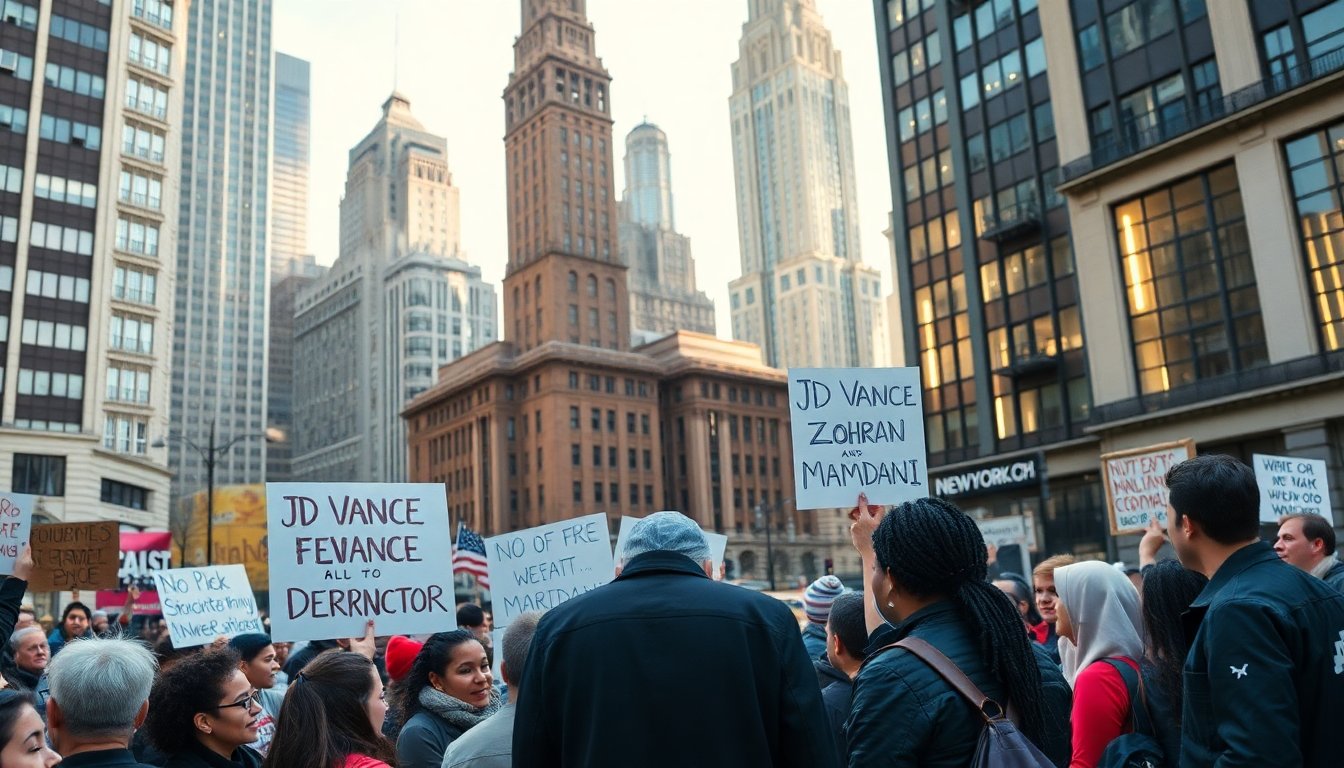Table of Contents
As early voting began in New York City, the political landscape intensified with Vice President JD Vance opposing mayoral candidate Zohran Mamdani. Vance’s comments followed Mamdani’s remarks at a campaign event, where he described his aunt, a victim of discrimination post-9/11. This exchange highlights the intricate relationship between identity and politics in a city still reconciling with the aftermath of the September 11 attacks.
Mamdani recounted a personal story, stating, “I want to speak to the memory of my aunt. Who stopped taking the subway after September 11th because she did not feel safe in her hijab.” Vance responded on social media, questioning Mamdani’s framing of his aunt’s experience as a true representation of 9/11’s victims.
Tension between candidates escalates
Mamdani elaborated on the implications of his statement, expressing solidarity with the Muslim community in New York. He highlighted the daily challenges faced by Muslims, stating, “I want to speak to the Muslim who works for our city… only to see their leaders spit in their face.” This sentiment reflects the growing frustrations of various communities feeling marginalized in the contemporary political discourse.
Cuomo’s Islamophobic allegations
The situation escalated as former Governor Andrew Cuomo, who is also pursuing a political comeback as an independent candidate, made remarks many interpreted as Islamophobic. In a radio interview, Cuomo suggested that Mamdani would not manage a crisis effectively, implying that he would ‘cheer’ if another attack similar to 9/11 occurred.
Mamdani quickly countered these allegations, calling them offensive and indicative of a pervasive problem of Islamophobia in New York. He affirmed, “Yes, I believe that they were,” when asked if Cuomo’s comments were discriminatory. Mamdani characterized the remarks as a desperate move from a politician disconnected from the needs of the city’s diverse populace.
Campaign dynamics and community response
The mayoral race has sparked debates over personal experiences and highlighted broader social issues affecting New York City. Mamdani reiterated his commitment to representing all New Yorkers, stating, “I have sought to be the candidate fighting for every single New Yorker, not simply the Muslim candidate.” His objective is to foster an inclusive platform resonating with various communities.
The role of identity in political discourse
Identity politics have emerged as a central theme in this election, with Mamdani sharing that he initially believed he could transcend the prejudices faced by his community. “I thought that if I behaved well enough… it would allow me to be more than just my faith,” he reflected, revealing the emotional burden of such biases. He concluded that despite his efforts to shift the narrative, the issues of discrimination remain deeply rooted in the city’s fabric.
As discussions around racism and discrimination proceed, Mamdani has encountered accusations of antisemitism due to his vocal criticism of Israel’s actions in the ongoing conflict in Gaza. These claims have further complicated his campaign dynamics as he attempts to engage with diverse communities, including Jewish voters, who have historically played a crucial role in New York elections.
With the mayoral election approaching on November 4, both candidates must navigate these sensitive issues while appealing to a varied electorate. The dialogue initiated by Vance, Mamdani, and Cuomo reflects not only personal stakes but also the societal implications of leadership in a city as diverse as New York.


